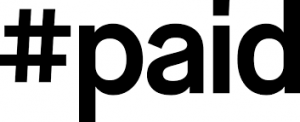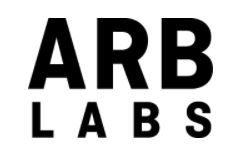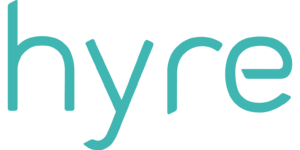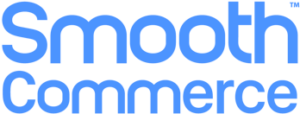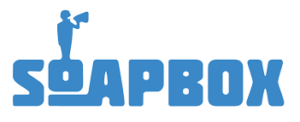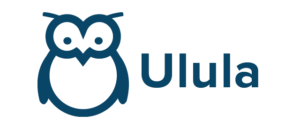Investing in the growth of rising Black-led tech startups
11 Black-led Pre-Incubator companies, 1 day of pitching, and $49,000 CAD of total funding awarded!
This summer, the DMZ hosted its inaugural Black Innovation Summit, bringing together the next generation of rising tech startups led by Black founders!
Equitable access to funding has been a longstanding issue in the innovation ecosystem. The Black Innovation Summit was designed to put capital directly into the hands of Black founders to help them take their startups to the next level.
Not only did the Black Innovation Summit award DMZ Pre-Incubator companies funding, it also put a spotlight on the importance of supporting the Black entrepreneurial community, and investing in the growth of an inclusive tech ecosystem.
So, how did the Black Innovation Summit work?
 The DMZ brought together select Black alumni founders from the DMZ’s Black Innovation Pre-Incubator to deliver startup pitches to a panel of esteemed judges. With a grand first place prize of $20,000 CAD at stake, founders laid it all out on the line to wow the panel with their innovative solutions.
The DMZ brought together select Black alumni founders from the DMZ’s Black Innovation Pre-Incubator to deliver startup pitches to a panel of esteemed judges. With a grand first place prize of $20,000 CAD at stake, founders laid it all out on the line to wow the panel with their innovative solutions.
Who came out on top?
Our founders did not make it easy for the judges, as all the startups delivered compelling pitches. From edtech, femtech, real estate, HR, fintech and more, we saw an array of innovative solutions and products that have the potential to make a real impact in their respective industry. Congratulations to all of the participants and winners!
1st place: Tunde Omotoye, Co-Founder of HumanSquad won $20,000 CAD in funding.
2nd place: Eyra Abraham, Founder of Lisnen won $10,000 CAD in funding.
3rd place: Michael Collins, Founder and CEO of Periculum won $5,000 CAD in funding.
We connected with the top 3 winning founders to learn more about their startup, how the funding will help them, and their experience with the Black Innovation Programs at the DMZ!
HumanSquad – Tunde Omotoye
Tell us about HumanSquad.
 HumanSquad helps people navigate their immigration journey and career path by connecting immigrants to licensed immigration consultants in Canada. The current Canadian immigration landscape for prospective immigrants includes traditional players, and complex and overwhelming processes which are expensive.
HumanSquad helps people navigate their immigration journey and career path by connecting immigrants to licensed immigration consultants in Canada. The current Canadian immigration landscape for prospective immigrants includes traditional players, and complex and overwhelming processes which are expensive.
At HumanSquad, we digitize the immigration process, making it simple and affordable.
Could you shed some light on your entrepreneurial journey? What brought you to where you are today?
 Our CEO and Co-Founder Tunde Omotoye provides informal immigration and human resource advisory support to over a quarter of a million followers seeking to move, settle, and grow their career in Canada.
Our CEO and Co-Founder Tunde Omotoye provides informal immigration and human resource advisory support to over a quarter of a million followers seeking to move, settle, and grow their career in Canada.
Tunde’s requests to have one-on-one advisory sessions concerning Canadian immigration evolved into HumanSquad. The reputation Tunde has garnered over the years has lent reliability and credibility to the HumanSquad model.
What was going through your mind when you found out you won first place at the DMZ’s inaugural Black Innovation Summit?
A lot, actually. It was unbelievable! We had practiced multiple times before the D-Day, so we were glad that our efforts weren’t wasted.
What impact did the DMZ’s Black Innovation Pre-Incubator have on your startup’s trajectory?
Coming into the DMZ’s Pre-Incubator, we had launched our prototype and were already seeing traction. So our expectations for the program, beyond validating our solution, were to upskill the team and redefine our go-to market strategy across sales, marketing, and tech to optimize our reach.
Before joining the Black Innovation Pre-Incubator, we didn’t understand concepts like ‘user journey’ or ‘OKRs’. Now, we understand customer profiling and engagement, and key client-related key performance indicators to look out for that can impact our bottom line and boost our topline.
Do you have plans on how you would like to use the money you’ve won? How will it help support your startup?
Our current tech infrastructure needs to be upgraded, so a significant portion of the grant is going to that. We are currently expanding our distributed tech team to work both on the front-end and back-end of our portal.
We’re also looking to invest in our marketing efforts, as we haven’t launched any aggressive paid marketing initiatives since we launched over a year ago. We are planning to test run some initiatives in our playbook to grow our customer engagement.
What message do you want to share with fellow Black entrepreneurs who are trying to build their own companies?
It’s important to connect with people already in the entrepreneurship space to understand their journey. We need to debunk the myth that entrepreneurship is a solitary journey. Entrepreneurs offer different services and sell different products, and there’s nothing wrong with learning from one another’s insights.
Of course – products differ, but entrepreneurship is by and large quite agnostic and there is so much a founder can learn from other founders. Following closely on the heels of that, I’d say to own your journey, take every entrepreneurial adventure as a learning experience, and allow yourself to evolve and learn through it all.
Lisnen – Eyra Abraham
Tell us a little bit about Lisnen.
Lisnen focuses on everyday safety and convenience challenges for the Deaf and hard of hearing. Fire alarms, sirens, yells, cries, door knocks, and bells are sounds that expect attention.
Yet, for people who are deaf and hard of hearing, not knowing can be a risk. Lisnen is solving the lack of access and inequalities of using only sound to communicate critical information for people with hearing loss.
What brought you to where you are today?
 I started Lisnen to address a personal pain point that I was experiencing as someone with hearing loss. I had slept through a fire alarm in my condo after taking off my hearing aids to sleep. I hadn’t realized what had happened until a couple of days later when a notice in my inbox notified tenants of the situation.
I started Lisnen to address a personal pain point that I was experiencing as someone with hearing loss. I had slept through a fire alarm in my condo after taking off my hearing aids to sleep. I hadn’t realized what had happened until a couple of days later when a notice in my inbox notified tenants of the situation.
It was a wake-up call – people living with disabilities do not have equal access to the same safety standards in establishments and residential areas. After buying and trying different products, I was waiting for someone to create a solution that worked. Finally, it dawned on me that maybe I should be the one.
What was going through your mind when you found out you won second place at DMZ’s inaugural Black Innovation Summit?
After hearing so many great pitches and founders with amazing businesses, I was very surprised, yet incredibly grateful.
I hadn’t pitched in a while, and I wanted to deliver my pitch to improve on it and practise. I was ready to congratulate the winners and head back to work!
When I won, I realized that we are blessed to be in the company of so many Black founders who are pushing forward to make changes for our community.
What impact did DMZ’s Black Innovation Pre-Incubator have on your startup’s trajectory?
The Black Innovation Pre-Incubator allowed me to see the successes and the possibilities within the entrepreneurial community. This was empowering, and gave me an extra bit of confidence with my work.
Also, the support network of founders has been impactful. There is a lot of diverse expertise that I can tap into to assist my business.
Do you have plans for how you would like to use the money you’ve won? How will it help support your startup?
The funding will support our app development as we continue to build our machine learning algorithm to support people with hearing loss and our corporate partners.
What message do you want to share with fellow Black entrepreneurs who are trying to build their own companies?
Nothing in our past can prepare us to reach our next level of success. So persevere and stay patient. Continue to grow and learn, and get comfortable with being uncomfortable as you reach new heights!
Lisnen is engaging with people in the hearing loss community and welcomes anyone with hearing loss to join their community of app testers. Head over to their website to sign up and co-create their community!
Periculum – Michael Collins
Tell us a little bit about Periculum. 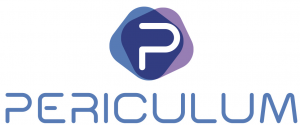
Periculum is a top provider of data analytics and credit assessment services specifically targeted to underserved markets. We work with financial institutions and lenders to digitize their solutions, including credit scoring and loan underwriting. Additionally, we provide data analytic solutions to give them an edge in the crowded marketplace.
Could you shed some light on your entrepreneurial journey? What brought you to where you are today?
 I was born and raised in Nigeria, where I spent the first 18 years of my life. I came to Canada on my 19th birthday to go to school at the College of New Caledonia in Prince George, British Columbia. I ended up transferring to Thompson University in Kamloops.
I was born and raised in Nigeria, where I spent the first 18 years of my life. I came to Canada on my 19th birthday to go to school at the College of New Caledonia in Prince George, British Columbia. I ended up transferring to Thompson University in Kamloops.
After school, I worked for BMO and CIBC, where I was first made aware of the problem Periculum is working on now – ‘thin files’. ‘Thin files’ refer to individuals and businesses that do not have access to loans or other financial services because they have little or no credit history.
About 1 in 15 people in North America are underserved by the financial services industry, but in the African market it’s 1 in 3 people. This led me to start Periculum to help people and businesses in Africa access financial and lending services.
What was going through your mind when you found out you won third place at the DMZ’s inaugural Black Innovation Summit?
At first, I didn’t really register the announcement because I was not expecting it!
There were some fantastic founders building great companies, so I did not expect to make it in the top three. When they announced Periculum as third, I was shocked, excited, and honoured!
What impact did the DMZ’s Black Innovation Pre-Incubator have on your startup’s trajectory?
Boy, where do I start…the DMZ’s Black Innovation Pre-Incubator is one of the best programs I have ever attended…period!
The lessons I learned from the great program mentors literally took Periculum to the next level. We didn’t have a very clear business strategy when we started, but the program helped us define our strategy and execute on it. I cannot say enough about this program!
Do you have plans on how you would like to use the money you’ve won? How will it help support your startup?
The money will help us acquire more server space, which will allow us to onboard more customers and grow our revenue.
What message do you want to share with fellow Black entrepreneurs who are trying to build their own companies?
Starting a company under normal circumstances is very hard, but doing it as a Black founder is even harder. Programs like the DMZ’s Black Innovation Pre-Incubator makes the black entrepreneurship journey easier.
I am very proud and honoured to be a part of the inaugural Black Innovation Summit, and I hope other institutions follow the DMZ’s lead in establishing programs like this because the more we get our Black community involved in entrepreneurship, the better our communities and world will be. The future is bright!
Periculum just launched a $500K pre-seed round, and have already raised over half of it! The round will help them expand their reach and offerings in the Nigerian and West African markets.


 We are two women who have crossed the threshold of 60! We both went through menopause and had difficulties with it, but at the time, there was very little information and support available for women.
We are two women who have crossed the threshold of 60! We both went through menopause and had difficulties with it, but at the time, there was very little information and support available for women. 

 I came to Canada at the age of 17 from Morocco – all by myself. I went to the University of Toronto where I studied political science. After graduating, I wasn’t sure what I wanted to pursue. So, I decided to leave Canada temporarily, travelled back to Morocco, and spent almost one year in Turkey where I taught English.
I came to Canada at the age of 17 from Morocco – all by myself. I went to the University of Toronto where I studied political science. After graduating, I wasn’t sure what I wanted to pursue. So, I decided to leave Canada temporarily, travelled back to Morocco, and spent almost one year in Turkey where I taught English.
 I look at the series as a communal platform for women to share the incredible tech businesses they are working on. To me, it’s an opportunity to build authentic relationships in the tech ecosystem with fellow women founders. Plus, it’s a bonus if a business deal comes out of it. All in all, I feel privileged to be part of this group.
I look at the series as a communal platform for women to share the incredible tech businesses they are working on. To me, it’s an opportunity to build authentic relationships in the tech ecosystem with fellow women founders. Plus, it’s a bonus if a business deal comes out of it. All in all, I feel privileged to be part of this group.  Traditionally, women founders are underrepresented and have been excluded from the inner circles that contain key resources and connections.
Traditionally, women founders are underrepresented and have been excluded from the inner circles that contain key resources and connections. 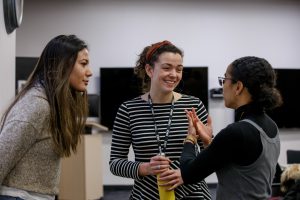 There are three foundational values I try sticking to as a woman founder. First, especially when starting out, always ask yourself ‘what is your
There are three foundational values I try sticking to as a woman founder. First, especially when starting out, always ask yourself ‘what is your 
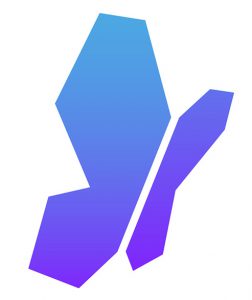

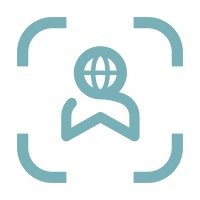

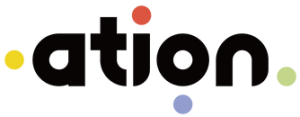
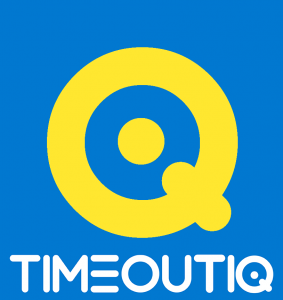
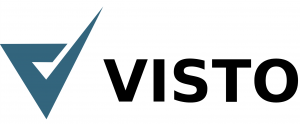

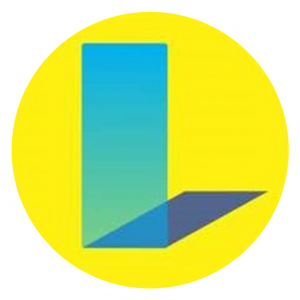

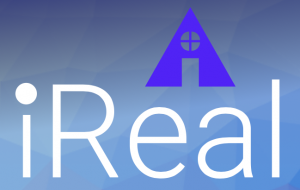
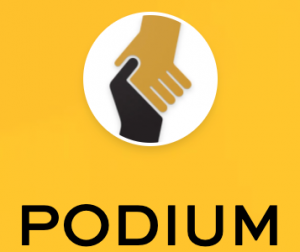
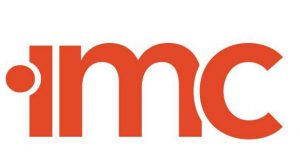







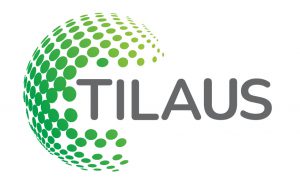
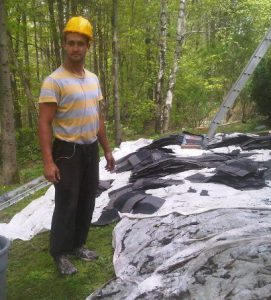
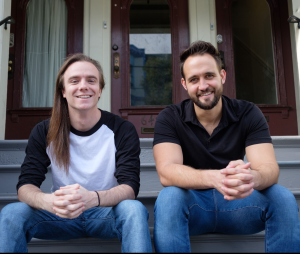


 “Being in DMZ’s Incubator program is like having a GPS for your startup journey, and the Black Innovation Program is the ‘Iron Man’ to DMZ’s ‘Avengers.
“Being in DMZ’s Incubator program is like having a GPS for your startup journey, and the Black Innovation Program is the ‘Iron Man’ to DMZ’s ‘Avengers. “As a part of the Incubator, we have a customized plan that was created for us to grow and dedicated mentors to work with. DMZ’s focus since day one has been on practicality, providing us with real tangible support to grow and succeed.” – Zach Sheng, Co-Founder of
“As a part of the Incubator, we have a customized plan that was created for us to grow and dedicated mentors to work with. DMZ’s focus since day one has been on practicality, providing us with real tangible support to grow and succeed.” – Zach Sheng, Co-Founder of  Charlotte: “I completed my 4-month internship for my Masters in Professional Communication at Toronto Metropolitan University at the DMZ.
Charlotte: “I completed my 4-month internship for my Masters in Professional Communication at Toronto Metropolitan University at the DMZ. 



